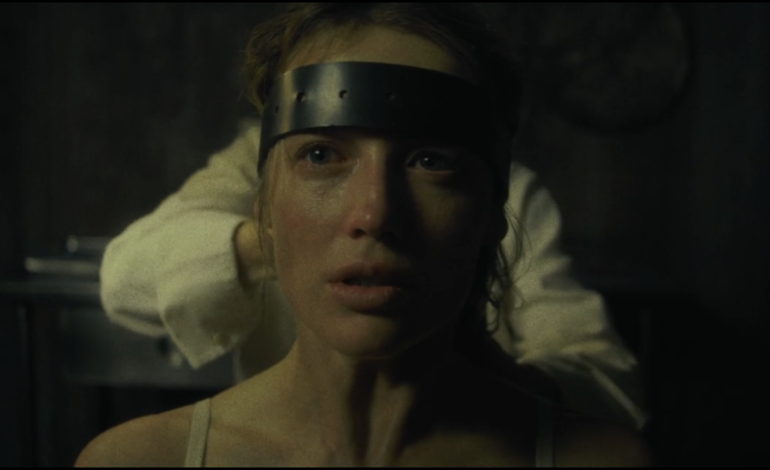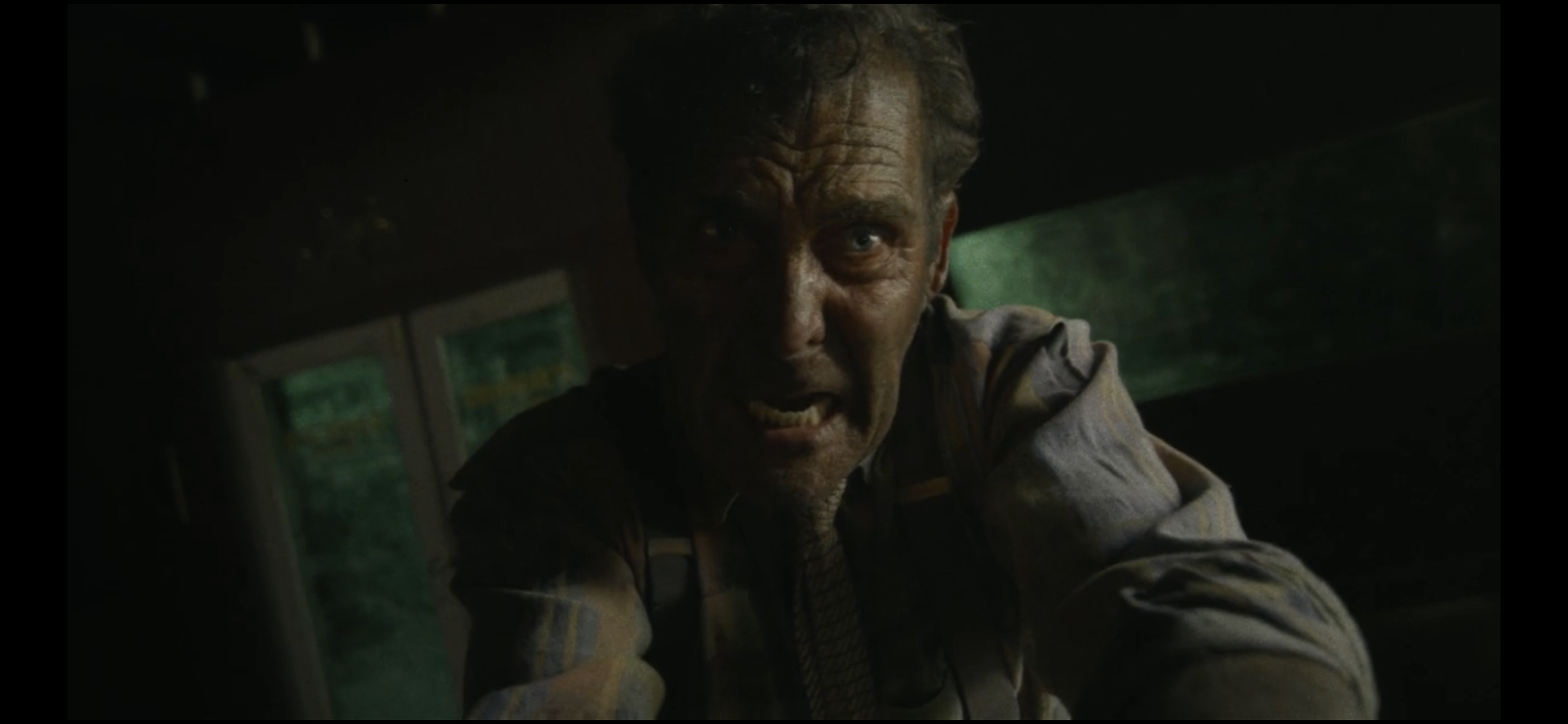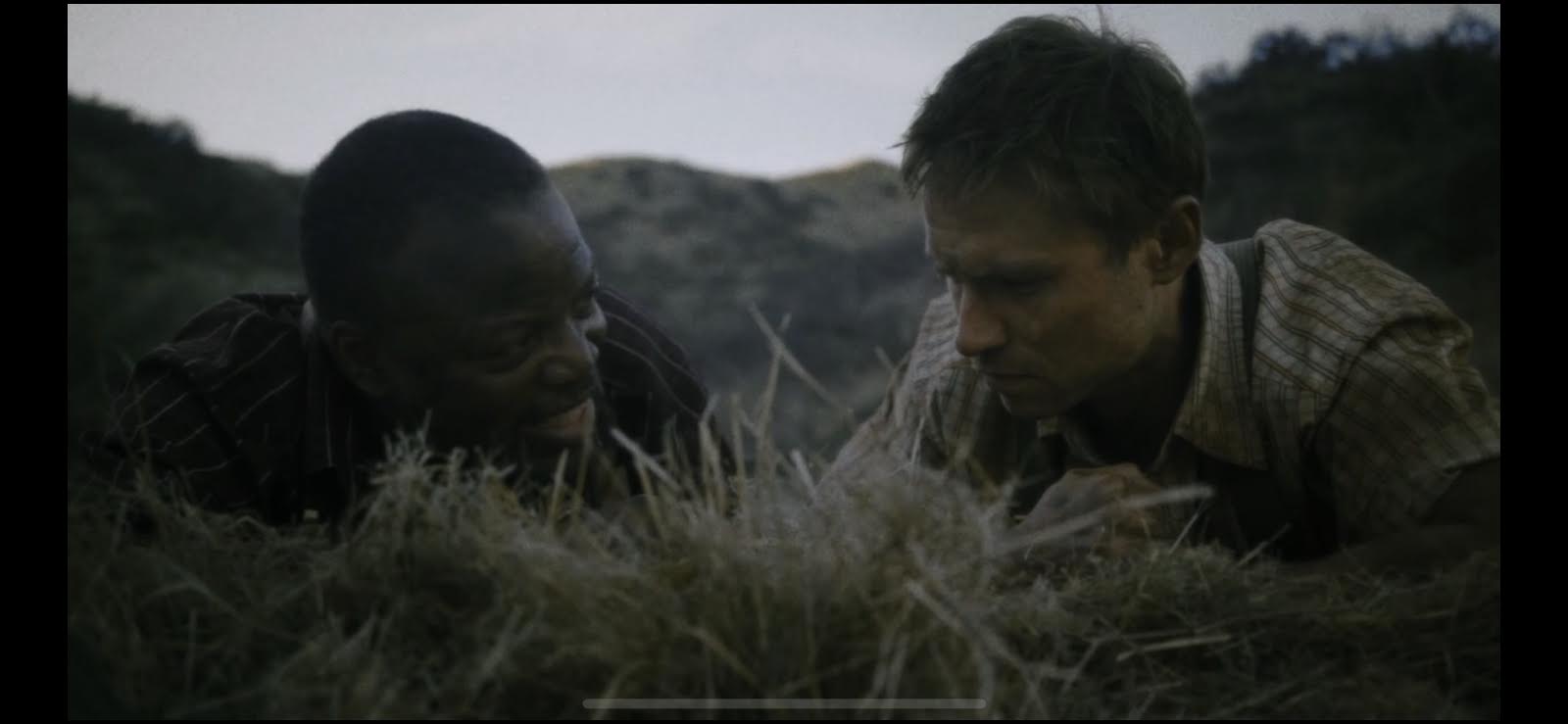

The film BAB directed by Joe DeBoer and Kyle McConaghy takes place in the 1950’s era. It opens with a young woman named Bab, driving with her two children. In this world, adultery, drugs, and anything associated with it must be severely punished. Bab (Sarah Dumont) does a procedure to help eradicate her tarnished reputation and sinful past. It isn’t clear what the experiment does for her, but the audience can assume it could be a way to stop her from partaking in prostitution, as it’s subliminally discussed in the film.
Many elements are trying to be at the forefront of BAB, but it’s constantly lost in translation, with many other film elements taking charge. The movie’s positives are the sound and cinematography, but just because visually and soundly the film is up to par doesn’t make the plot any more explicit. It takes an approach to a dystopian future-directed in the past very literally. Many old film techniques, such as the “dutch angle,” are commonly used to distort viewers. The “dutch angle” is overused to the point of parody-like feeling, but it also reminds the audience that this is not set in the present time. It’s as if Alfred Hitchcock stepped into the present day and decided to be the cameraman. There are pluses to this film style. We are engulfed in the movie entirely.


The sound and music in the movie are some of the film’s best parts. It creates suspense and nostalgia for many moviegoers who still watch 1950’s movies as of now. From the start of the movie to the end credits, we are at the edge of our seats. It controls our anxiety levels, as if we are inside the action, running from trouble. The antagonist, Mr. Bascum (Robert Miano), wears a metal brace around his torso. It creates an eerie effect when he walks, primarily when heard offscreen; we know trouble is coming.
Regardless of the suspenseful appraisal, many aspects of the film could have been improved. The character arcs and the world-building are the prime reasons. We are placed into the movie without exposition, relying solely on a fainted radio playing during the opening credits. The lack of a world surrounding the setting can also startle the audience. Asking questions, such as where exactly are we? Why is this happening? There is no reason or any sensical outcome of why Bascum could take over a whole county or why the townsmen chose to follow him.
Donnie (Nick Heyman) is the protagonist, but we see him as a child with limited screen time, jumping as an adult. He’s a man with anger issues trying to care for his little sister while his mother is locked up because of the procedure. (It’s not clarified why Bab is there.) Milt (Sterling Macer Jr.), our secondary protagonist, comes out of thin air, knowing everything about Donnie, and it’s undisclosed how he knows about Bab’s condition. He coerces Donnie into helping him kill Bascum. Milt does this by telling Donnie he will give money to him for Bab to get better at a new facility because of her failing conditions. We don’t know Milt’s vendetta against Bascum until the last act, and even then, it feels too rushed for the audience to grasp and understand the many wrongs of Bascum fully.


The side characters like Mr. Harold (Mathew Geer), Brenton (David Gridley), Bean (Jessica Treska), and Rhoda (Suzan Crowley) add positives to the story. Mr. Harold is a man with a small business, letting anyone take a room at his hotel for just buying a pillow. We feel for this character. We care what happens to him. Brenton is Donnie’s colleague; though he is naive in some ways, he wants what’s best for Donnie and his sister Bean. He even goes as far as to check over at their mother, Bab. Bean is still a child, and it’s prevalent that she has been neglected by her brother Donnie, yet her character feigns a strong front to protect herself. Rhoda is a woman being used for Bascum’s sexual needs. Many use her, showing the hypocrisy of Bascum’s adultery. She’s brave and probably the most intelligent person in the film. Any one of these characters would have been better as the main character, yet we get the perspectives from Donnie and Milt.
Rating: 2.8/5
The film is strange, to say the least. It relied heavily on the look and feel rather than the missing pieces of information that could clarify the meaning. The film’s first half was a blur, while the second half made me care about what I was watching. Sadly, that doesn’t make up the entirety of the movie.
